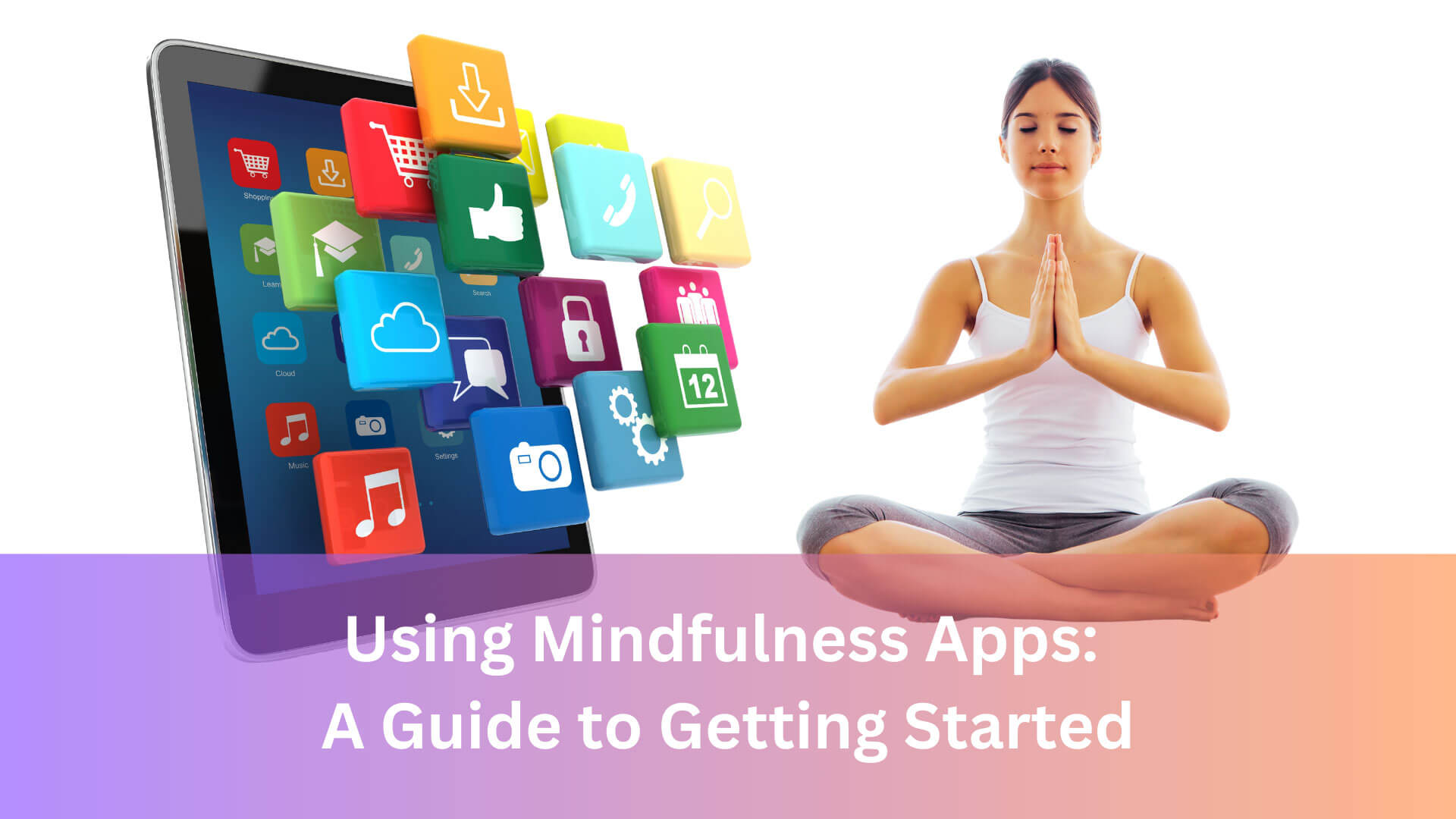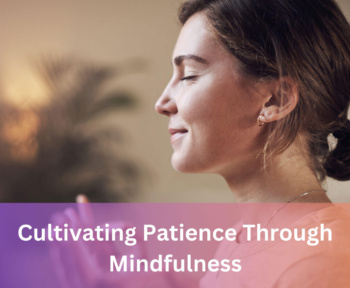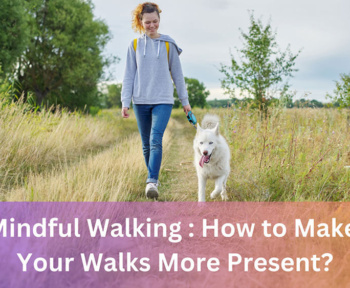Using Mindfulness Apps: A Guide to Getting Started
In our modern, busy lives, stress and anxiety seem to be constant companions for many people. The overwhelming pressures of work, school, relationships, and personal life can take a toll on our mental health, leaving us feeling exhausted and disconnected. In response to this growing need for stress management and emotional well-being, mindfulness has become a popular practice. Whether you’re new to mindfulness or looking to deepen your practice, mindfulness apps provide a user-friendly and accessible way to start incorporating this powerful tool into your daily routine. This guide will help you understand the benefits of mindfulness, introduce you to popular apps, and give you practical tips for getting started.
Mindfulness is the practice of being fully present in the moment without judgment. It involves paying attention to our thoughts, feelings, and bodily sensations with awareness and acceptance, allowing us to better manage stress, enhance emotional regulation, and improve overall well-being. Rooted in ancient Buddhist practices, mindfulness has been embraced worldwide for its mental and physical health benefits. It encourages individuals to cultivate a balanced state of mind, focusing on the here and now, rather than worrying about the past or future.
In addition to promoting relaxation, mindfulness has been shown to improve concentration, reduce symptoms of anxiety and depression, promote better sleep, and even lower blood pressure. These benefits have made mindfulness an appealing practice for many, and the rise of mindfulness apps has made it easier than ever for individuals to start their mindfulness journey.
Why Use Mindfulness Apps?

While traditional mindfulness practices often involve meditation or yoga in a quiet space, mindfulness apps offer the convenience of practicing mindfulness anytime and anywhere. Whether you’re at home, on your lunch break, or commuting, mindfulness apps provide an easy way to incorporate mindfulness into your busy lifestyle. Here are a few key reasons why mindfulness apps can be beneficial:
1. Convenience and Flexibility
Mindfulness apps allow you to practice whenever you have time, whether it’s for a few minutes or a longer session. Many apps offer guided meditations that can range from 5 minutes to 30 minutes or longer, so you can choose the duration that fits your schedule.
2. Variety of Tools and Techniques
Mindfulness apps often offer a range of tools such as guided meditations, breathing exercises, sleep aids, and body scans. Many apps also provide courses or progress trackers to help you deepen your practice and stay motivated.
3. Personalization
Most apps let you customize your experience based on your specific needs. You can select the type of meditation (e.g., focus, relaxation, stress relief), the duration, and even the voice of the guide. Some apps also offer features like reminders or tracking to help you stay consistent with your practice.
4. Affordability
While some mindfulness apps offer premium paid versions with advanced features, many have free versions with a range of meditation options. This makes it a cost-effective way to explore mindfulness without committing to expensive in-person classes or therapy.
Popular Mindfulness Apps to Get Started
There are numerous mindfulness apps available on the market, each offering unique features to cater to different preferences. Below, we’ve highlighted some of the most popular and highly-rated mindfulness apps that can help you get started.
Headspace is one of the most well-known mindfulness apps, praised for its simple, user-friendly interface and wide range of guided meditations. Headspace offers a free version with a selection of introductory meditations, but for full access to all courses and features, users can opt for a subscription.
Key Features:
- Guided meditations for beginners and advanced users
- Sleepcasts and sleep music for better rest
- Themed courses on topics like stress, anxiety, focus, and relationships
- A “Move Mode” for gentle exercise combined with mindfulness
- A progress tracker to monitor your mindfulness practice
Calm is another highly-rated mindfulness app, known for its calming interface, soothing sounds, and emphasis on relaxation. It offers a range of mindfulness practices, including meditation, sleep stories, and breathing exercises.
Key Features:
- A variety of guided meditations (including those for beginners)
- Sleep stories narrated by famous voices (e.g., Matthew McConaughey)
- Music tracks designed for relaxation or focus
- Breathing exercises to reduce anxiety
- Daily Calm: A new 10-minute meditation each day.
Insight Timer is a free app that offers one of the largest libraries of guided meditations, music, and soundscapes. It’s ideal for people who are interested in a variety of meditation styles, and it has a strong community element, where users can join groups and share experiences.
Key Features:
- Over 100,000 free guided meditations
- A customizable meditation timer
- Music tracks and soundscapes for relaxation
- Courses on mindfulness, meditation, and personal growth
- Community groups for support and motivation
Happier is an app that focuses on mindfulness and meditation, with an emphasis on mental clarity and emotional well-being. The app’s content is created by experts in the field, offering a more practical and scientifically-backed approach to mindfulness.
Key Features:
- Guided meditations and mindfulness practices
- Courses led by meditation teachers and mental health experts
- A focus on mindfulness in everyday life, including relationships and work
- Progress tracking and mindfulness challenges
- Meditation practices tailored to different goals (stress, focus, self-compassion)
Breethe is an app that offers a variety of mindfulness and wellness practices. In addition to guided meditations, it includes breathing exercises, yoga routines, and sleep aids to promote overall well-being.
Key Features:
- Guided meditations for relaxation, sleep, stress relief, and focus
- Breathing exercises to reduce anxiety and improve mental clarity
- Yoga sessions and stretching routines for physical relaxation
- Daily reminders and challenges to keep you consistent
- A customizable meditation timer for self-guided practice

Now that you have an idea of what mindfulness apps can offer, let’s look at how you can get started. If you’re new to mindfulness, the key is to approach it with patience and consistency. Here are a few steps to help you begin your mindfulness practice with an app.
Step 1: Choose the Right App for You
Take the time to explore different mindfulness apps to find one that resonates with you. Many apps offer free trials, so you can experiment with a few before committing. Consider your goals (e.g., relaxation, stress reduction, sleep) and choose an app that aligns with your needs.
Step 2: Set Realistic Expectations
Mindfulness is not a quick fix, and the benefits of regular practice can take time to become noticeable. Set realistic expectations and commit to practicing regularly, even if it’s just for a few minutes a day. Over time, you’ll notice improvements in your mental and emotional well-being.
Step 3: Start Small
When you’re just starting out, it’s helpful to start with short meditation sessions. Many apps offer guided meditations that are as short as 5 minutes. Use this time to simply focus on your breath or listen to the meditation guide. As you get more comfortable, you can gradually increase the duration of your practice.
Step 4: Create a Routine
Consistency is key to developing a mindfulness practice. Try to set aside a specific time each day for your practice, whether it’s in the morning, during lunch, or before bed. You can set reminders within the app to help you stay on track.
Step 5: Be Patient and Non-Judgmental
One of the core principles of mindfulness is to approach your thoughts and feelings without judgment. If your mind wanders during meditation, simply acknowledge it and gently return your focus to the present moment. Mindfulness is not about achieving perfection; it’s about developing a deeper connection to your thoughts and emotions.
Incorporating mindfulness into your daily routine is an effective way to improve your mental, emotional, and physical well-being. Mindfulness apps provide a convenient and flexible way to practice mindfulness, offering a range of tools and resources that can support your journey. By starting small, setting realistic goals, and being patient with yourself, you can create a sustainable mindfulness practice that fits into your busy lifestyle.
Whether you’re seeking stress relief, better sleep, or improved focus, mindfulness apps can help guide you toward a more balanced and centered life. So, choose an app that resonates with you, and begin your mindfulness journey today!
Let’s comment which app you are using to start your journey towards mindfulness!










